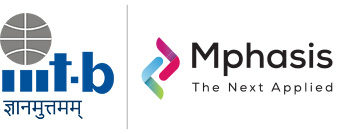Remotely Accessible lab
on Electro-Mechanical Systems
Overview:
Globally, there have been many efforts in the development of labs focussed on teaching engineering concepts – such as dynamics and control – using hardware that can be accessed over the internet. In India, apart from a few simulators for Electrical Machines, there exists no remotely accessible lab that uses hardware on which experiments can be performed. This project aims to bridge this gap. Through this project, students can perform experiments on an industry-grade brushed-DC motor experimental set-up, through a website where experimental
parameters can be con
figured. The experiment will be conducted in real time and data, such as voltage and speed, will be made available for download for analysis and tuning.
Some of the key benefits offered by remote labs are
- Flexibility: open all the time and can be accessed by users with disabilities;
- Maximal use: expensive equipment can be used by many users;
- Real experimentation: access to actual hardware generated data, instead of simulations; and
- Active learning: change parameters to observe differences and understand concepts.
This proposal is for the development of a remotely-triggered lab, which initially, will consist of several brushed DC motors sets coupled to each other. At the time of writing, a fully functional proof-of-concept remote lab is present in IIIT-B. The following list of experiments can potentially be conducted (a few have been tested successfully in a restricted environment) on the existing remote lab:
- Modelling and simulation – system identification, transient response
- Classic and modern control – PID tuning, state-space approaches, observers, non-linear control such as sliding mode control
- Digital control and embedded systems – influence of sample time, digital controllers
- Robotics – trajectory planning, independent joint control, feedforward control
- Reinforcement Learning and Neural Networks – choice of policy function and neural network architectures
These experiments will be of use to students of various disciplines – Electrical, Mechanical, Mechatronics, and Data Science. Under the umbrella of Virtual labs, to the best of this author’s knowledge, there are no remotely-triggered labs that be used to teach these concepts.
TEAM MEMBERS:
- Sachit Rao, Assistant Professor, IIIT-B
- Kalpana, MINRO Centre, IIIT-B
Publication:
- P. Angadi, S. Anas and S. Rao, “Developing an NN-MPC DC Motor Platform for an Online Real-time Laboratory,” 2022 IEEE Conference on Control Technology and Applications (CCTA), Trieste, Italy, 2022, pp. 1117-1122, doi: 10.1109/CCTA49430.2022.9966140.
